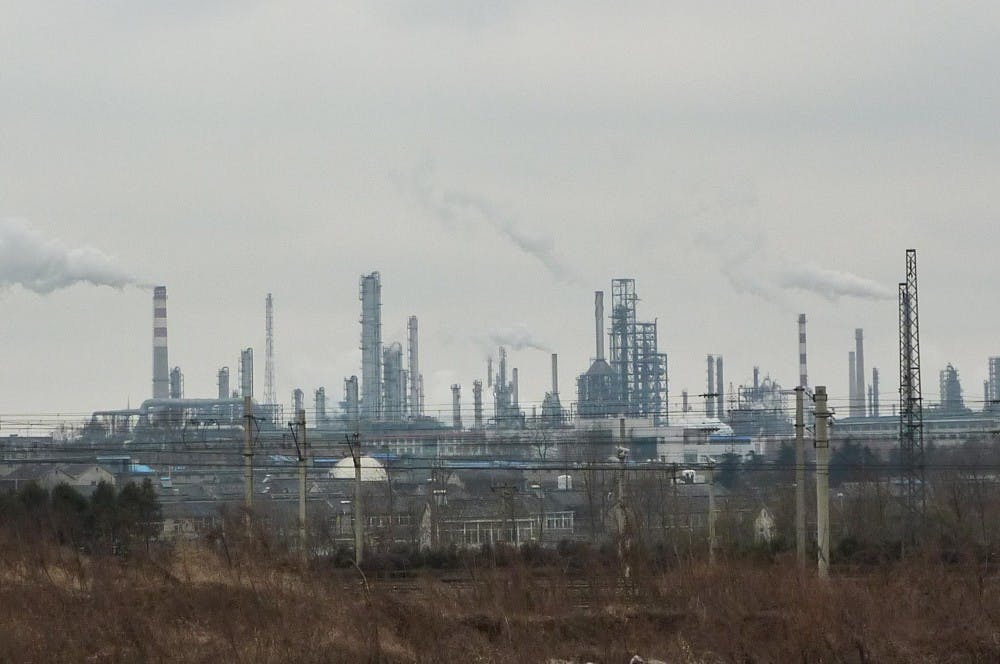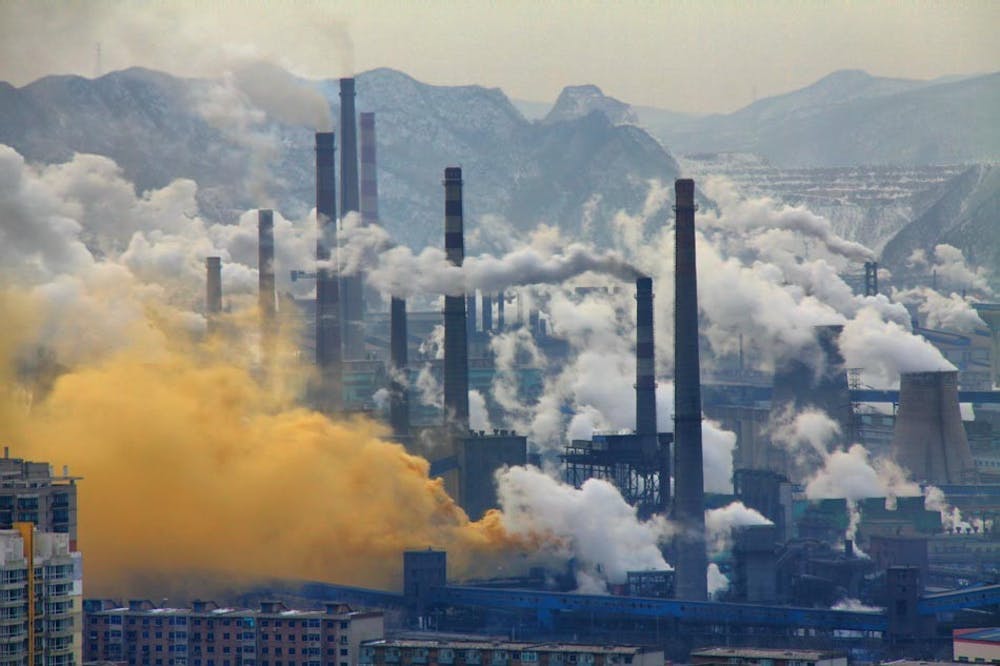By Tom Gbean | Echo

China already has plenty to worry about, such as fulfilling its role in the international community as the world's second largest economy and facing rising tensions with Japan. Is tackling its pollution problem worth the effort?
Though China's economic miracle strengthened the country, it was also accompanied by dire environmental and public health consequences, including contaminated water sources, cardiorespiratory disease and premature death.
The National Bureau of Asian Research (NBR) found that polluted air is significantly raising morbidity and mortality rates, according to The NBR.
The NBR also cited a study conducted by the U.S. Center for Disease Control and Prevention, which concluded that Beijing's air quality was 16 percent worse than air in a U.S. airport smoking lounge. The same study also found a rise in cardiovascular diseases in China. Those diseases led to 1.2 million premature deaths in China in 2010, according to Deutsche Well, Germany's international broadcaster.
When the people suffer, so does the economy. According to U.S. News & World Report, costs associated with pollution-health impacts and lost labor productivity-accounted for 6.5 percent of China's GDP in 2012.
In an interview conducted by Deutshe Well, the Asian Development Bank's environmental expert, Qingfeng Zhang said the estimated total resource and environmental costs of China's pollution amounted to 13.5 percent of the country's GDP in 2005.
The environmental statistics are even scarier. Nearly 60 percent of the country's underground water is polluted. Of China's economic sectors, agriculture is the most affected. Decreased crop production, deforestation and structural damage to buildings are all consequences of frequent acid rains caused by pollution.
Though the government recognizes these concerns, it simply hasn't substantively addressed them. Recent research shows that there is little improvement in the air quality of northern Chinese cities.
China's premier, Li Keqiang, said the progress made in addressing the issue falls short of the expectations of the Chinese people.
Hoping to tackle air pollution, parliament has proposed levying a costly green tax on firms using harmful pollutants such as sulfur dioxide, nitrogen oxide and coal. There would also be taxes on vehicles, sewage and garbage disposal to encourage households to use resources more economically.
In an editorial piece published on U.S. News & World Report, Keith Crane, the director of the RAND Corporation, said China should switch from coal-fuel power plants to natural gas, nuclear energy and renewable fuels.
But change isn't cheap. Replacing half of China's coal-fired electric power with renewable or nuclear power would cost approximately $184 billion per year. Crane wrote that the total investment necessary for China to reduce its pollution would amount to $215 billion annually.
Though $215 billion seems like a staggering amount, it pales in comparison to the 6.5 percent cost incurred to China's 2012 GDP of $8.2 trillion. These costs could be more than offset by reducing pollution to World Health Organization-recommended levels, which could bring in economic benefits of $500 billion annually, according to U.S. News & World Report.
A 2013 survey conducted by the Pew Research Center in China indicated that 47 percent of Chinese respondents rated air pollution as a huge problem. Survey results led to people condemning the government's efforts in addressing pollution on social media.
One such condemnation was a tweet posted by a Chinese citizen that criticized the government's seeming lack of responsibility concerning pollution.
"It's summer and the sky's been dark for almost a week. You should stop deceiving the people and explain the reason for it and fix it. It's only then that you'll be good leaders," the tweet said.
Referencing a report by the 13 Five Year Plan on Environmental Protection, Zhang said that while some improvements are made each year in different areas, the general situation still isn't under control, according to Deutshe Well. He believes that it's unlikely true comprehensive improvements in environmental quality will be achieved until 2030.



